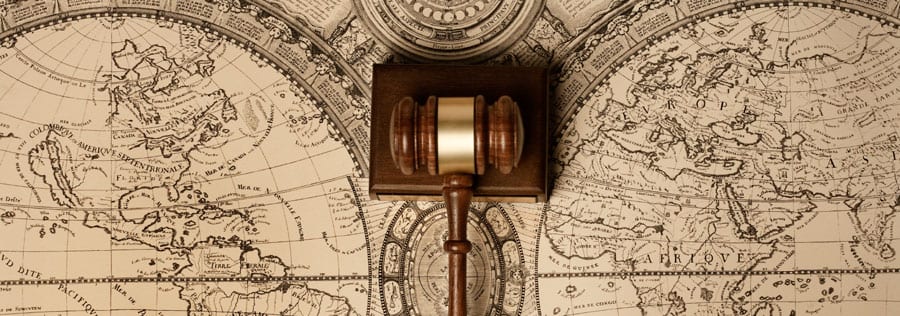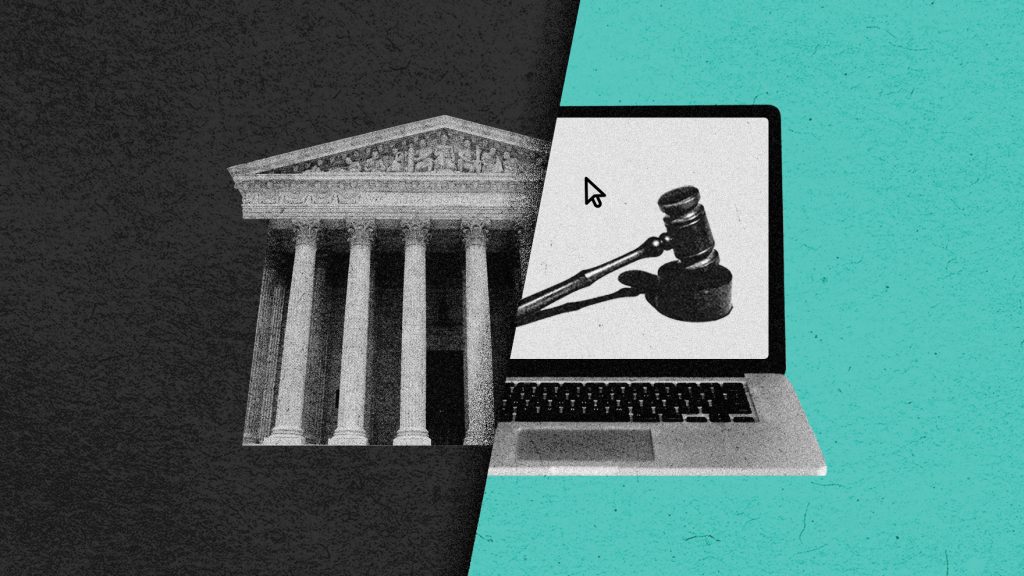
The Contemporary world is a global village and everything is interlinked. In a world hungry for technology, power, and money, people lost their peace in their way. World history is all about wars, conquers, and bloodshed, every casualty is supposed to teach us a lesson on vacation but we are in the middle of the war in 2022, Despite having many international institutions to promote peace in the world, everything went into vain after Russia declared war on Ukraine, it has been a year since the war started, thousands of casualties, lot of destruction. Then comes the question of what role international law, international institutions, and peaceful dispute resolution play.
The Importance of International Law in Dispute Resolution

International law is essential to dispute resolution because it offers a framework for amicable discussions, encourages communication between states, and holds violators accountable. It provides a set of guidelines for state behavior with the intention of preventing and resolving problems peacefully.
The Oslo Accords, which Israel and Palestine signed in the 1990s, are a good example. By addressing crucial problems like boundaries, security, and the status of Jerusalem, these accords attempted to provide a foundation for peace talks. The Accords showed the ability of international law to promote communication and a peaceful end to protracted disputes. The Joint Comprehensive Plan of Action (JCPOA), sometimes referred to as the Iran Nuclear Deal, is an initiative that was reached between Iran and the P5+1 countries in 2015. It made an effort to ensure that Iran’s nuclear program would stay peaceful in exchange for the easing of sanctions. The JCPOA offers an example of how international law may be utilized to ease tensions and address security concerns through diplomatic dialogue.[1]
International criminal tribunals and courts can also help in dispute resolution. The International Criminal Tribunal for the Former Yugoslavia (ICTY) and the International Criminal Court (ICC) exhibit dedication to bringing people responsible for war crimes, crimes against humanity, and genocide. These institutions help to foster peace by discouraging new atrocities, promoting justice, and giving a forum for victims to seek reparation. Furthermore, the UN and other institutions play an important role in dispute resolution and settlement. The United Nations Security Council has the ability to levy sanctions and approve peacekeeping missions. For example, peacekeeping operations in Sierra Leone and Liberia exemplify the UN’s attempts to restore stability and aid the transition to peaceful government in post-conflict circumstances.[2]
However, it is critical to recognize international law’s difficulties in dispute resolution and settlement. As demonstrated in the instance of Russia’s annexation of Crimea and the current crisis in Ukraine, compliance and enforcement of international legal rulings are frequently questioned. Political factors, political imbalances, and varying interpretations of international law all offer substantial barriers to successful implementation. In dispute resolution, international law is extremely important. It displays its potential to encourage peaceful discussions, enforce accountability, and discourage future crises via instances such as the Oslo Accords, the Iran Nuclear Deal, and the formation of international criminal courts. However, overcoming compliance and enforcement issues remains a key responsibility if international law is to fully realize its promise of settling disputes and keeping the peace.[3]
The Challenges to International Law in Dispute Resolution

In dispute resolution, international law has major problems, which can limit its efficacy in promoting peace and settling conflicts. Noncompliance, power imbalances, politics, and limits in enforcement procedures all contribute to these difficulties.
Noncompliance with international legal judgments by relevant parties is one of the primary issues. For example, in the continuing war between Russia and Ukraine, Russia’s annexation of Crimea violates international law’s non-intervention rules. Despite worldwide criticism and legal judgments, Russia has maintained control of Crimea, challenging the authority and efficiency of international legal systems. Power disparities can cause prominent governments to selectively apply international law. The Israeli-Palestinian conflict offers an example, with claims of selective application of international law in the context of settlements, self-defense, and human rights violations. Bias and double standards perceptions weaken the legitimacy and efficacy of international legal norms and organizations.
Conflicts frequently become highly political, posing difficulties in maintaining an impartial perspective and applying international law. The involvement of several states in the Syrian civil war has resulted in conflicting interpretations and politicization of judicial processes. This can jeopardize the possibilities for fair and unbiased legal outcomes and attempts toward long-term peace. International law is based on state cooperation and enforcement activities. However, restrictions in enforcement methods might make successful dispute resolution difficult. For example, the lack of a centralized authority frequently impedes the capacity to bring individuals responsible for war crimes and violations of international humanitarian law accountable. The crisis in Syria exemplifies the difficulties in establishing responsibility and justice in the absence of a strong enforcement system.[4]
Even when international legal rulings and frameworks exist, governments’ failure to comply and apply them can stymie dispute settlement attempts. For example, due to political divides among permanent members and non-compliance by important parties participating in the crisis, UN Security Council decisions on the Syrian conflict have experienced substantial obstacles in their implementation.[5] This undermines the potential impact of international law in resolving the conflict and promoting peace.
What are the plausible solutions to overcoming challenges?
- UN’s main agenda is to maintain peace and stability among nations, The security sector governance reform, which may be a difficult and protracted project, may be one way to address the problems of upholding and enhancing global peace and security. There should be equal authority and representation for other developing and third-world nations in the UN security council, which should be more inclusive than simply the P5 when deciding the fate of the rest of the globe.
- Contemporary nuclear-powered countries still contribute a larger portion of national income towards militarisation, when the world is scrambling in poverty, human rights violations, and environmental degradation. To maintain the balance of power among nations, certain restrictions should be imposed on countries from misusing their power.
- Whenever there is a situation of violence breakout, then the UN conflict risk assessment should be used it is the early recognition of a bad scenario. The risk assessment is a powerful technique for identifying important risks so that risk management methods may be integrated, enhanced, and adjusted accordingly. As a result, the conflict may be improved.
- Addressing human rights abuses as potential antecedents to atrocity crimes in a proper manner and conflict shall be duly in place for conflict-affected areas, states engaged in the conflict, or being at risk of potential involvement. Human rights violations are often the clearest indications of a looming conflict. A comprehensive and common analysis of the human rights situation and conflict drivers will enable the Organization to take system-wide actions to prevent greater violations from occurring.
Conclusion
In today’s globally interconnected society, the contribution of international law to fostering the peaceful resolution of disputes is of utmost significance. International law, which aims to avoid and resolve disputes without the use of force, offers a framework for negotiations, debate, and accountability through its processes and principles. In addition to fostering diplomatic efforts, it provides standards that guide state action and respects the rights of those harmed by conflicts both personally and in their communities.
However, there are several obstacles that prevent international law from being effectively applied, including non-compliance, power disparities, politicization, and limits in enforcement procedures. To address power dynamics, defend the rule of law, assure adherence to international legal judgments, and develop enforcement mechanisms, governments, international organizations, and civil society must work together to overcome these obstacles. In order to create a more peaceful and just world for future generations, efforts to promote peace via international law must be continuous, flexible, and sensitive to the developing character of disputes.
References
- [1] Revisiting International Human Rights Law, (1997) 8 DULJ 67
- [2] Higgins, R. (1995). Peaceful Settlement of Disputes. Proceedings of the Annual Meeting (American Society of International Law), 89, 293–296. http://www.jstor.org/stable/25658930 accessed 21 June 2023
- [3] ‘Collaboration between the Regional Organizations, United Nations “Grown Exponentially”, UN Press (United Nations) <https://press.un.org/en/2021/sc14498.doc.htm> accessed 21 June 2023
- [4] Lande, G. R ‘The changing effectiveness of general assembly resolutions. Proceedings of the American Society of International Law at Its Annual Meeting (1921-1969), 58, 162–173.< http://www.jstor.org/stable/25657623>accessed 21 June 2023.
- [5] Owen, J. M. ‘How Liberalism Produces Democratic Peace’ International Security, 19(2), 87–125. <https://doi.org/10.2307/2539197>accessed 21 June 2023.